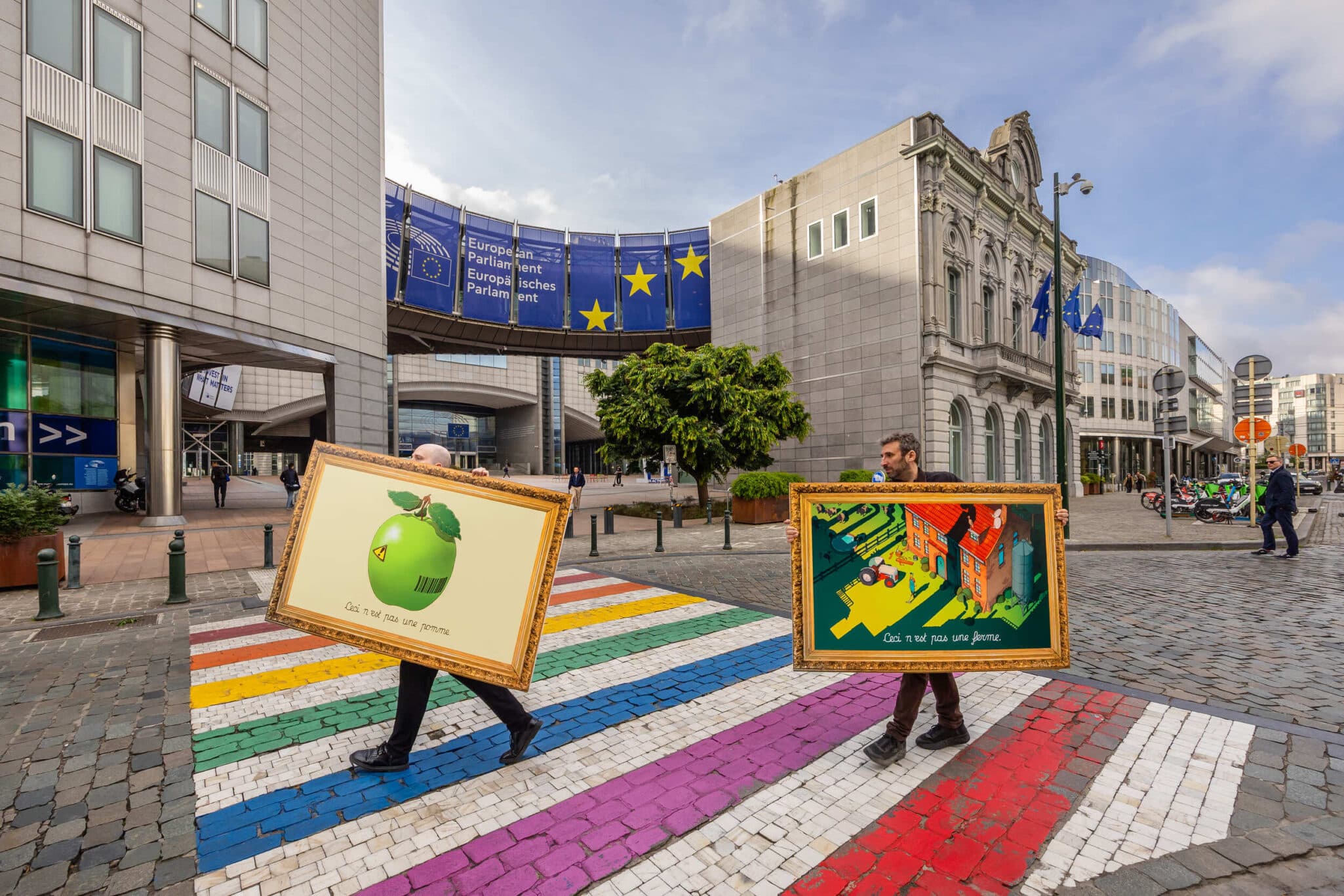Key Takeaways
- A WeMove Europe art campaign outside the European Parliament called for reform of the EU's €386 billion Common Agricultural Policy (CAP).
- The campaign was supported by over 100,000 citizens, farmer groups, and environmental organizations across Europe.
- Advocates argue the current system disproportionately benefits large-scale agribusiness over sustainable small- and medium-sized farms.
- The coalition is urging alignment of the CAP with EU Green Deal goals.
- The action included Magritte-style artwork to spark public and political reflection.
WeMove Europe Uses Surrealism to Spotlight CAP Inequities
In a high-profile public campaign, WeMove Europe, an independent activist network of over 750,000 members, staged a series of surrealist art installations outside the European Parliament. Styled after René Magritte’s “Treachery of Images,” the visuals featured slogans like “Ceci n’est pas une ferme” (“This is not a farm”) to question who the EU’s farming policies truly serve.
The campaign serves as a visual prompt to lawmakers to reassess the European Union’s Common Agricultural Policy (CAP), the bloc’s largest budget item. According to the organizers, the current subsidy model encourages industrial-scale farming and marginalizes small, environmentally responsible producers.
Farmers, Citizens, and Environmental Groups Call for Change
Backed by a coalition of farmer unions, environmental NGOs, and over 100,000 citizens, WeMove Europe is pushing for CAP reforms that prioritize fairness and sustainability. Among their primary concerns is the concentration of subsidies: 80% of CAP funds go to just 20% of recipients, while five million farms have closed across the EU since 2005.
“Small farmers are being pushed off the land while agribusiness giants cash in on public money,” said Giulio Carini, communications manager at WeMove Europe. “We need to support farmers and reward them for protecting our nature and climate.”
Morgan Ody, a vegetable grower and member of European Coordination Via Campesina, added: “Public money must be used to keep rural areas alive by regulating markets and supporting the transition to agroecology — not to fuel the industrialisation of farming.”
WeMove Europe Policy Demands and Connection to the Green Deal
The coalition’s recommendations include:
- Fair pricing that covers the real cost of sustainable production
- Market regulation such as supply management and price floors
- Support for small and medium-sized farms
- A shift to agroecology to protect ecosystems and climate
- Accessible, healthy food for all EU citizens
The group maintains that these proposals are essential to making the CAP consistent with the EU Green Deal, which aims to promote climate action, biodiversity, and social inclusion across sectors.
Broader Context: Economic Pressure on Farmers
CAP critics argue that subsidized overproduction is contributing to market imbalances. In some countries, such as France and Spain, dairy farmers are selling milk below production costs, a situation the coalition links to CAP’s existing structure.
With public polling showing that a majority of farmers in countries like Spain, Italy, and Poland feel abandoned by EU policymakers, WeMove Europe is using both data and public art to amplify calls for policy reform.


